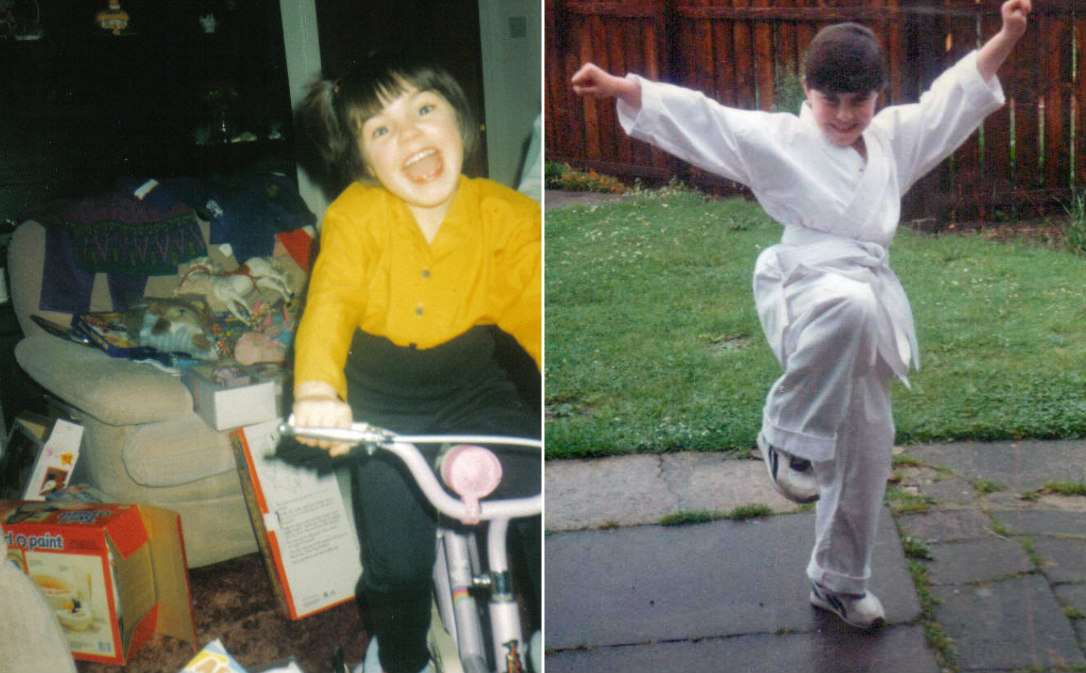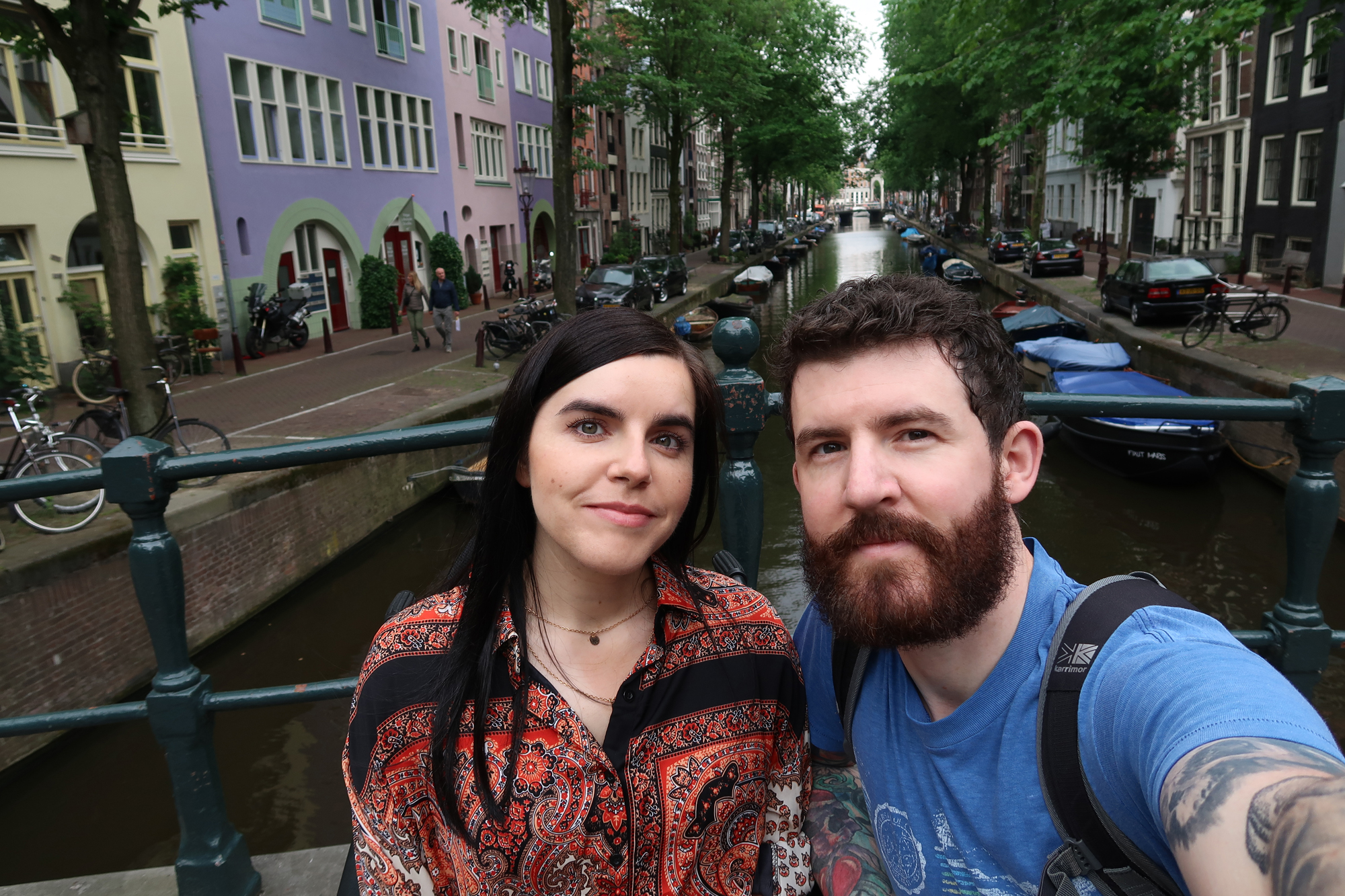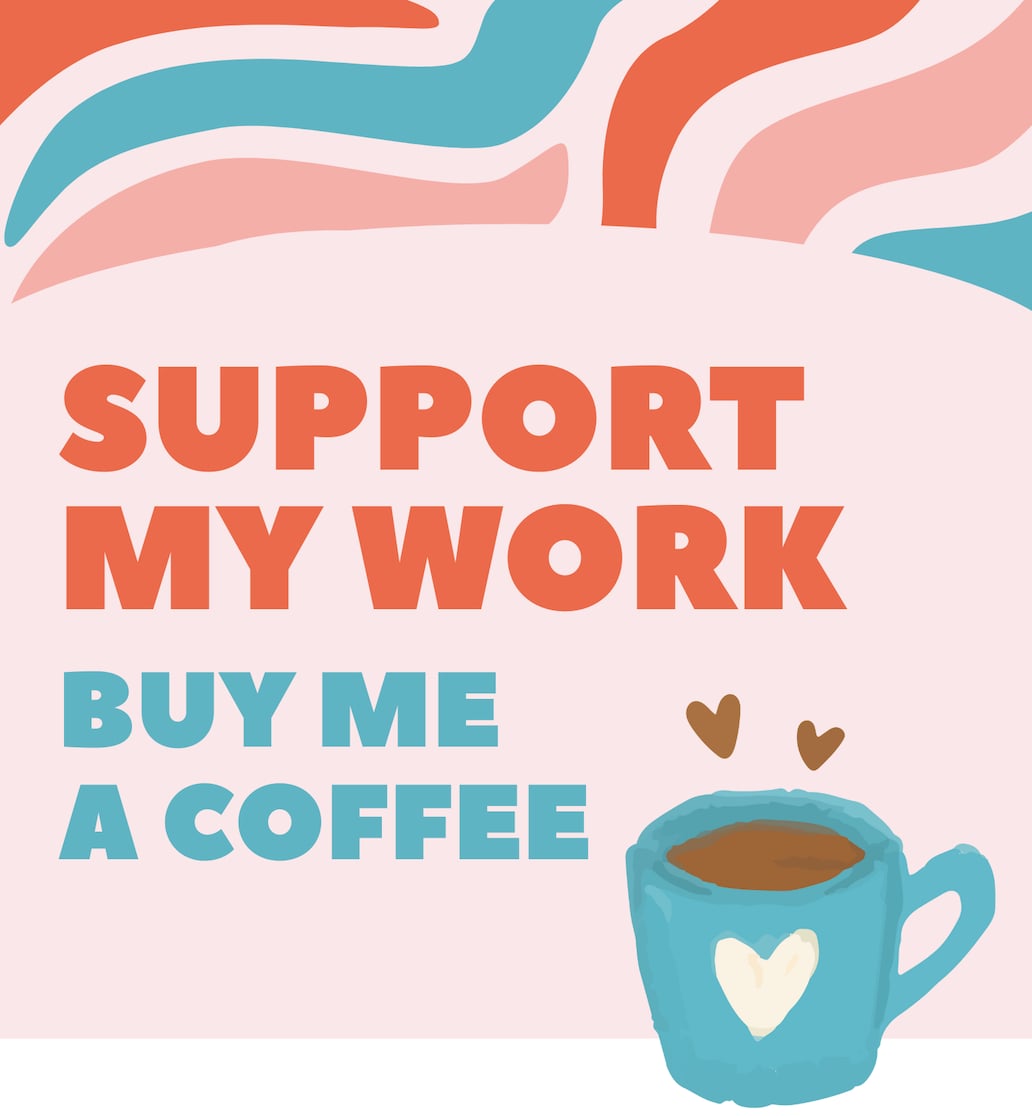When I write about my disability and what it’s like living with Muscular Dystrophy, it is always from my perspective. My disability not only affects me, but it also affects my family and those closest to me. For a long time now I’ve wanted to get my family’s perspective on my disability and what better way to start off than by asking my parents.
In this post, I ask my parents to answer some questions on what it’s like parenting a child with Muscular Dystrophy. Everything from the first symptoms, the diagnosis process, impact on family life, the challenges, what support was available and much more.
Before I start the Q&A with my parents I want to give a brief background for those who don’t know me and my family. My parents have three daughters and I am the middle child. My oldest sister, Claire and I have the same condition, Limb Girdle Muscular Dystrophy and we are both full-time power wheelchair users. However, my youngest sister, Lisa does not have Muscular Dystrophy, but there is a high chance of her being a carrier of the faulty MD gene. There are two and a half to three years between my sisters and me.
I hope this Q&A with my parents sharing their thoughts and feelings on parenting a child with Muscular Dystrophy is helpful to you or someone you may know going through a similar situation or recent diagnosis.
Symptoms and Diagnosis of Muscular Dystrophy
1. What were the first symptoms you noticed in my older sister and me?
From the age of seven, Claire was waddling when she walked as well as toe-walking. We noticed that when she was going upstairs, she would put her feet at each stair edge, struggling to get up. Running was a problem as she flipped her feet and lost her balance. When you were around the same age, we noticed you had similar movements and problems walking. However, the doctors said it was highly unlikely that we would have two girls with Muscular Dystrophy. We requested a simple blood test, which revealed our fears were correct.
2. How did you feel when you first started to realise that something wasn’t quite right?
We were aware that something wasn’t quite right, but the Doctor just said that Claire was ‘normal’ and that she just needed more activities, like cycling, swimming etc, we did all this activity, but still had fears that something wasn’t quite right. We never expected it to be anything like Muscular Dystrophy as there was no history of the condition being in the family so it was a very uncertain time for us.
3. What was involved in the diagnosis process? What was it like going through the process of diagnosis?
The first thing we did when Claire was showing symptoms was to make an appointment with our Doctor. As he thought Claire needed more activities/exercise, he referred her for six months of physiotherapy to see if there was any improvement. After that, when there was no improvement, we were then referred to a specialist for further investigation.
It was a very long and difficult process. We didn’t know what to expect so we just had to go through the motions and take each specialist appointment as they came. The whole process was very daunting, upsetting and frustrating. As concerned parents, we were getting impatient with our several trips to see the Paediatrician without proper diagnosis or tests being done.
They took a blood sample from Claire and said we would probably hear back in approx. 10 – 14 days. Next morning, we received a call from him, asking us to take Claire immediately to The Southern General Hospital as they had found Dystrophin in her blood test.
A year or so after Claire’s diagnosis, we noticed you were showing the same symptoms. At first, doctors thought you were possibly copying Claire as it would be highly unlikely that you both would have the condition, but we knew that wasn’t the case. We just knew you also had the same. It wasn’t until a blood test revealed you did, in fact, have Muscular Dystrophy as well.

4. How did you feel when you found out the diagnosis was Muscular Dystrophy?
Shocked and Devastated, I immediately went to the Local Library and read up about the various forms of Muscular Dystrophy. Went home and said to your Mum that it must be a mistake as it appears only boys get it, as the female usually carries the Muscular Dystrophy Gene. But after Claire had a biopsy on her thigh muscle, it was confirmed that she had Muscular Dystrophy. However, they believed it to be between Becker’s and Duchenne. As they couldn’t and didn’t have much information on females with this condition, it was suggested that a strain of Muscular Dystrophy may be named after you both.
It was such a difficult time, but we had to be brave and stay strong for everyone. A range of emotions from shock, anger, sadness to relief that we now had a diagnosis to also feeling incredibly guilty and responsible because it was inherited from us. We cried a lot, but never in front of you.
A number of years later you also had a muscle biopsy taken from your thigh and further tests were carried out. This was done down in Newcastle under the care of Professor Kate Busby and that is when we found out you both have Limb Girdle Muscular Dystrophy.
5. How much did you know about Muscular Dystrophy?
At the time, like most people, we had only heard of Duchenne Muscular Dystrophy which usually affects boys. One of our friend’s son had Duchenne and he was in a wheelchair. It was quite a shock to find out you both had Muscular Dystrophy. There was so much to take it and it took a while for it to properly sink in.
6. What effect did our diagnosis have on you and the family?
We were both shocked but felt that we had to put on a brave face for you all and make everything as normal as things could be. Having to learn both of your limitations, and to NOT mollycoddle you, treating you as the strong women you have both turned out to be.
As a family, we always tried to make everything as normal and as positive as possible. It was important that we treated the three of you the same and make sure Lisa didn’t feel left out.
7. What information or support were you given?
The doctors were very unhelpful, as they were not specifically up to speed with Muscular Dystrophy. We had six monthly check up’s at the hospital, but we stopped going as we were just telling the paediatrician the changes to Claire’s fitness without any information coming back. We had a contact at MD Society who came out and did home visits, who gave us advice regarding changes to our home and also introduced us to our Local Occupational Therapist.
The OT was fantastic and we had her for around 15 years. She was incredibly helpful and assisted in various adaptions to our house to accommodate you and your sister’s wheelchairs, bathing, toileting, handrails, stairlifts, equipment etc. She was always there and fought for us many times.
The MD support worker was another fantastic support in our lives during the early years. She was always there to speak to whenever we needed anything. Her support was particularly vital especially when you were all at school and your Dad was working and I needed someone to speak to.
8. Was it difficult knowing when to tell us we had Muscular Dystrophy? Can you explain how you told us?
It was very difficult. Claire knew something was going on, so we decided it was best to tell her. She sat in silence, taking what we said through our tears without comment.
You actually walked into the room as I was the phone to the Doctor receiving the news of your diagnosis. You asked straight away if you had the same as your sister. You immediately refused to accept your disability and stated that you wanted to go to dancing and Karate. You weren’t letting Muscular Dystrophy hold you back from doing what you wanted to do.
We also didn’t want to portray that it was a life-threatening condition as we were still unsure which strain you both had, and we lived in the hope things would get better.

Family Life When Living With Muscular Dystrophy
9. What has been the biggest challenge for you in terms of having two daughters with Muscular Dystrophy? Were you afraid that your youngest daughter may also have the condition or carry the faulty gene?
One of the biggest challenges was accepting the disability without feeling sorry for ourselves (why us, why my girls). As you both grew your Mum had the hardest part to play, as I worked away from home quite a lot. So she had to look after all three of you, do everything for you and carry out all personal care. Transport was an issue, so we did fundraising to buy a large van to accommodate both wheelchairs and other basic equipment. But we never regarded it as a challenge. Just a blip that we just got on with.
Another challenge was staying strong and coping with everyday tasks for both of you as you have always been at different stages with your condition. It was also important to make sure your younger sister never felt left out when you and Claire needed constant care. We always wanted her to have as normal a life as possible, but there was a worry that she would also develop symptoms. She doesn’t have Muscular Dystrophy, but it’s very likely she is a carrier of the faulty gene.
10. In what ways has our physical disabilities changed family life?
Don’t think it changed the family in a negative way if anything we were closer. We loved our weekends as there were days out and evenings at home or friends’ houses. Had a lot of fun. We were limited with things like funfairs/shows. But our lives were normal too us.
11. Having two disabled children is extremely hard work. What were some of your strategies for ensuring our youngest (able-bodied) sister didn’t feel like she wasn’t getting enough attention?
We got Lisa involved with you and Claire as much as possible. The three of you got on great. Lisa did fetch and carry and sometimes got in a strop and let you wait for her. She also got involved with the Youth Club we ran for disabled and able-bodied kids.
As Lisa was very young when you were first diagnosed it meant that when you were both at school I was able to spend the whole day with her, which I think also helped.
Read: Young Carers: My Sisters Perspective Of Caring For Disabled Siblings
12. What was/is your greatest worry about having two children with Muscular Dystrophy?
Losing you.
13. What is your proudest or happiest moment in raising us?
How you have both overcome your disabilities and school achievements. Claire being creative and building her first website for a London based company. (She is now super successful with her own website design company – Wildflowers & Pixels). Your lecturer at College phoning us to state that you would be better served at University rather than College, as well as your employment achievements and fantastic disability blog. And not forgetting Lisa who gave us a Grandson to be proud of.

14. What is the one biggest misunderstanding people or parents have when it comes to children with Muscular Dystrophy?
That they cannot live a long and fulfilled life, and that they cannot find love. Both you and Claire have loving partners and enjoying life. Even with your challenges. Another misunderstanding people have is that they think because you are in a wheelchair that you cannot speak for yourselves, which is something we’ve always experienced since you were young.
15. My sister and I both attended mainstream school rather than a special educational needs school. Was this a difficult decision to make? Did you have any concerns or regrets?
We fought the authorities to keep you both in a mainstream school. We believed that you didn’t need a special educational needs school as your disability was a physical disability. We also wanted you to have local friends, which did benefit you as you had good friends from school. There was a record of needs opened so that you received any equipment required to give you the same education as able-bodied children. No regrets at all. Worth the fight.
16. Now that we are grown up and living independently with partners, do you still feel a sense of responsibility?
Yes, we will always feel a sense of responsibility as most parents do. I guess there may be a greater sense of responsibility when you have disabled children as you want them to be cared and looked after but also live fully independent lives. We are thankful you have partners who look after your health, wellbeing and help fulfil everyday tasks. It is always a worry when you have an illness or hospital visits etc.
17. What advice would you give to other parents of physically disabled children in particular Muscular Dystrophy?
It’s important to work as a team, seek advice and support from all sources. If you’re comfortable to do so, accept or ask for help from friends and family when offered. Even if it’s just a half-hour, take time for yourself as it will definitely help. Speaking with people in a similar situation will also help greatly. Fight to keep them in a mainstream school if that is what you believe is right for them. Love all achievements.
Lastly, I want to thank my parents for taking the time to answer these questions and for all your support throughout the years. I know it wasn’t easy to look back on and answer some of these questions, but I appreciate it so much.
If you have any questions, please leave a comment below or you can send me an email if you’d prefer to chat privately.
Are you a parent of a child with Muscular Dystrophy or other disability? Or are you a young disabled person? What impact has your disability or your family members disability had on family life? What are your strategies for coping with it? I would love to hear your thoughts and experiences.
Remember you can follow me on Twitter | Facebook | Instagram | Bloglovin’ | Pinterest
You might also like:
5 Things I Do Differently Living With Muscular Dystrophy
10 Awesome Perks of Being In A Wheelchair
My Identity And How My Disability Defines Me
Sharing is caring!








5 Responses
Excellent post, it is wonderful to hear from the parents perspective. It feels that there is little information out there from parents to parents.
Thank you for your kind words. I’m delighted you enjoyed this post from my parents and I hope it was helpful to you 🙂
Hi…I just found this…my daughter has LGMD 2e. ..we are going through all this …thank you for sharing. It helped knowing that my daughter has the chance to have a career and to have a fulfilling life.
Hi Asmita
Thank you for your comment – I’m so happy you found my blog and that you found this post helpful. I hope you are all doing okay and working through this difficult time. Your daughter will absolutely have a career and a fulfilling life. Please let me know if you have any questions 🙂
My daughter just got her diagnosis a few weeks back. It’s LGMD2B.
As parents we went through all these tough and harrowing procedures of getting the right diagnosis. It was like reading my own story when I read the parents interview.
My girl is now 15 yr old. Walks well although with a waddle. Has difficulty climbing stairs, but still does it. Is undergoing physiotherapy. And attending school with computer science has her main subject.
I have read a lot about gene therapy. Is it taking place anywhere clinically? Do let me know.
Emma… You are an inspiration. Will keep coming back to your page. Thankyou for all the info.
( W are from Kerala,a state in India).
With love.
Gliny.
M/o Theertha.